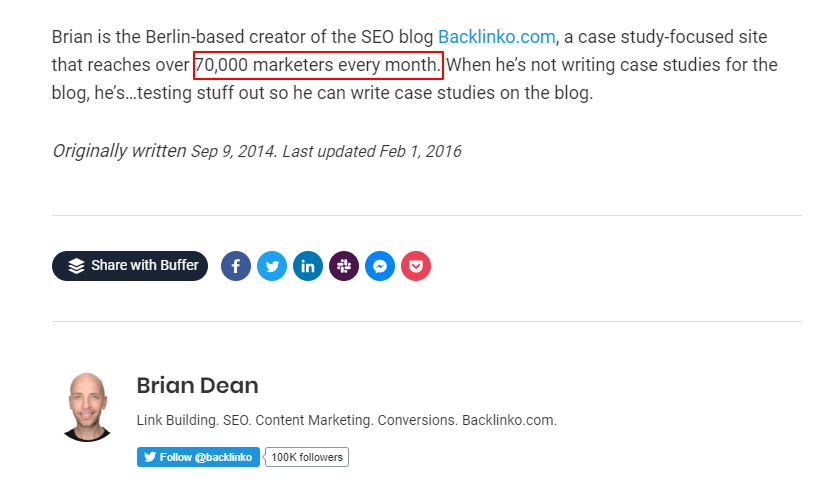Over the past few months that is a buzzword, “E-A-T” that everyone is talking about. If you are also looking for the answer, then you have come to the right place.
Today, you will learn everything you need to know about E-A-T, including:
- What is E-A-T?
- Why E-A-T is important for your web pages?
- The relationship between E-A-T and “Your Money or Your Life”
- How to use E-A-T?
- How Google understands E-A-T
Keep reading…
What is E-A-T?
In SEO, E-A-T stands for Expertise, Authoritative, and Trustworthiness.
Google attempts to stop people who are creating fake content about sensitive topics like health, money-making schemes, etc. In other words, companies, website owners who want to stand out should start creating useful and quality content.
Many low E-A-T pages have seen a massive drop in ranking after February 2019 updates.
Why E-A-T is important for your web pages?
Google is always in favor of creating content for humans than a search engine. And, E-A-T is the right solution to deal with the low-quality spam content pages which are ranking high in search results.
E-A-T is now a crucial part of Google ranking algorithms, and if you want to rank higher in search result pages, you’ll need to improve the content for your E-A-T. In short – E-A-T determines a website’s overall value.
Quality raters pay close attention to web pages to understand how well the content meets the standards. They see if users feel comfortable reading, sharing, and suggesting the content to others or not.
To earn a high level of E-A-T, you will have to provide actual value over quantity. And, you should avoid publishing content that you don’t have enough knowledge about.
The relationship between E-A-T and “Your Money or Your Life”
Now the question is…
How E-A-T does affects to your visitors?
E-A-T is strongly related to YMYL (Your Money Your Life) pages. Any online page which publishes content on medical advice, legal advice, financial advice, etc. called the YMYL page. In other words, anything that causes changes in human behavior, happiness, health, or wealth comes to YMYL pages such as:
- An online store that requires your credit card information
- A blog that publishing content on parenting advice
- A website that is offering legal advice
- A health website that lists symptoms of the rare disease like Covid-19
The YMYL pages will have a high level of E-A-T, that provides safe user browsing to users as well as meets their search results. Sites that are actually providing real value will have more chances to rank in SERP than those which are trying to scam with Google.
How to use E-A-T?
Now you know how E-A-T evaluates websites for trustworthiness and authority. It’s time to see how you can improve your E-A-T score:
Optimize your content
The first thing you can do to improve your E-A-T score is to optimize your content for users, not only for search results. Don’t limit yourself to the Keyword Planner for keyword research because the tool was built for paid advertisers, not for SEO. Greatest SEO companies suggest that you use paid tools like Ahrefs and Semrush for your keyword research.
Visit other platforms where real users are looking for solutions to their problems. You can find tons of untapped queries on Quora and other forums related to your niche. To boost the process, you can use the SEMrush tool. Check out this SEMRush tutorial to learn how to use this SEMrush to find queries that users are looking for.
Simply put the domain in SEMrush and search for your keyword; it will show you other related keywords that people are searching on these sites to find the answer.

Once you have a handful of keywords, then optimize your content around them to provide the best possible solution that they want from you.
Improve content quality
Write content that makes readers believe in you. Moreover, back up claims with supporting evidence whether it is an image or URL. Optimize your content for mobile devices to provide a high user experience. And, prefer to talk about the topics that you understand well and can satisfy the users.
Show credentials
The thumb rule of E-A-T content is that the user should trust the information you are providing to them. This is why you shouldn’t be afraid to show your achievement, training, and experience. That sends trust signals to your readers as well as google loves the pages that show authenticity. Here is an example of Brian Dean’s guest post on Buffer.

Establish your authority
The best thing you can do to earn google and users’ trust is to establish the authority of your website and authors online. Ask your staff to get published on other sites under their name.
Additionally, you can share the online platform with other experts in your niche to build your authority. If you are selling a product or service, then you can ask your consumers for testimonials, which is another way to show your authority.

How Google Understands E-A-T
Well, no one outside of Google knows the exact answer to these questions. But we have some thoughts that we can say this is how Google determines E-A-T.
Links and even unlinked mentions count
Gary Illyes said at Pubcon Austin in 2018 that Google is really good at determining which links and mentions should give value and which should ignore. If you are getting mentioned in lots of websites and media, then it can help.
However, Google thinks that they can know which buzz is organic and which are there just because you paid for that or self-created.
Let’s say you paid a Forbes contributor to mention your website on his content. Google is smart enough to catch that, and most probably, it would ignore your link. On the other hand, if a Forbes Staff journalist links your website, then it will count as a vote.
And, that might be the reason they made changes to rel=nofollow tag. We believe that Google can count your link as E-A-T if it comes from an authoritative site even if that is nofollowed.

Google knows which links should give value
In the past few years, Google has improved a lot. We already have seen the new Penguin algorithm that supposed to ignore low-quality links that comes from weak sites. In fact, they are still ignoring a large number of links and considering only that comes from trusted sources.
However, there still needs improvement as many spammers doing the game with private blog networks (PBN) and other tricks to achieving high ranking. But, Google is smart enough to know which links should count and which ones to pass.
Bill Slawski, the director of Go Fish Media, wrote about a Google patent where he mentioned that Google is can easily find if the linked site on authority website is a trusted source or not.
Here is what he means…
As we know, the BBC is known as a trusted website. And, Google can know if the linked site from BBC is a trusted site or not. Because at high authority sites like BBC links are placed manually, and that should be trusted sources like them.
In short, Google has its own list of trusted sites, and when your website gets mentions or gets links from those websites, it makes Google happy. And, of course, it counts in your E-A-T score.
Is E-A-T really a ranking factor?
E-A-T is not a direct ranking factor like other 200 factors such as page speed, HTTPS, etc. that Google considers. E-A-T doesn’t work that way; its role in the ranking is more likely to be indirect.
By now, we have seen that E-A-T is connected with quality content and links. And, Google considers content and links as a ranking factor. This is why it makes sense you shouldn’t ignore the E-A-T when you are trying to rank higher in search engine results.




